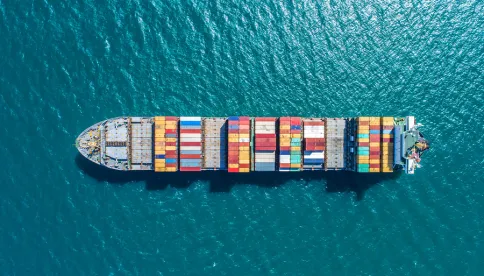In 2018, the United States Court of Appeals for the Fifth Circuit announced a new test to determine whether an oil and gas services contract is maritime in nature in the unanimous en banc decision, In re Larry Doiron, Inc., 879 F.3d 568 (5th Cir.) (en banc), cert. denied, 138 S. Ct. 2033 (2018). The new test, as we have previously reported, asks (1) whether the contract provides services to facilitate the drilling or production of oil and gas on navigable waters, and (2) whether the parties expect that a vessel will play a substantial role in the completion of the contract. Id. at 576. The Doiron decision dealt “only with determining the maritime or non-maritime nature of contracts involving the exploration, drilling, and production of oil and gas.” Id. at n.52. The Fifth Circuit went on to state that the test could apply to a non-oil and gas services contract if the activity “involves maritime commerce and work from a vessel.” Id.
On November 11, the Fifth Circuit expanded the Doiron test by announcing in a published opinion that it applies to all mixed-services contracts, not just those arising in the oil and gas context. Barrios v. Centaur, No. 18-31203 (5th Cir. Nov. 11, 2019). In Barrios, the plaintiff was injured while offloading a generator from a crew boat to a barge. The plaintiff’s employer had executed a master service contract with the owner of a dock for repair work to be performed at the dock facility, including the installation of a concrete containment rail. To do the work, the plaintiff’s employer chartered a barge, which moved up and down the river using a tugboat and a winch. The plaintiff’s employer contracted with the barge owner to transport crew and equipment to the barge via a crew boat.
The plaintiff sued both the barge owner and his employer for his injuries. The barge owner cross-claimed against the employer, seeking contractual indemnity under the master service agreement and additional insured status. If the master service contact was a maritime contract, then the indemnity provision would be enforceable under the general maritime law. But if the underlying contract was non-maritime in nature, then Louisiana law would invalidate the indemnity provision. The district court determined that the contract was a “land-based construction contract,” and therefore governed by Louisiana law.
The issue on appeal was whether the dock contract was maritime in nature. To make that determination, the Fifth Circuit grappled with the appropriate test to apply to this non-oil and gas contract. The court noted that only one district court had applied the Doiron test to a mixed-services contract. See Lightering LLC v. Teichman Group, LLC, 328 F. Supp. 3d 625, 627-29 (S.D. Tex. 2018). There, the court applied a three-factor test that began by asking whether a contract for wharfage, storage, and other dockside services involved maritime commerce. While this analysis was “seemingly clear-cut,” the Fifth Circuit determined that it was “far from straightforward.” Instead, the Fifth Circuit found that Doiron should apply as written because it streamlines the inquiry and is consistent with the United States Supreme Court’s decision in Norfolk Southern Railway Co. v. Kirby, 543 U.S. 14 (2004), which requires courts to look to the primary objective of a contract when determining whether the contract is maritime. Therefore, the court employed a broader test to determine whether the dock construction contract in Barrios was maritime in nature.
The test enunciated by the Barrios court is: “To be maritime, a contract (1) must be for services to facilitate activity on navigable waters and (2) must provide, or the parties must expect, that a vessel will play a substantial role in the completion of the contract.” Applying that test to the facts of the case, the Fifth Circuit determined that the first prong was met because the construction of a concrete containment rail was to facilitate activities on navigable waters. The dock extended into the Mississippi River and the containment rail was designed to prevent materials from spilling into the river. On the second prong, the court determined that the parties contemplated that the substantial use of a vessel, namely a barge that would be shifted using a tugboat and winch, would be required to complete the contract. Accordingly, the Fifth Circuit reversed the district court and remanded the case, holding that the master service contract was maritime in nature.
The Fifth Circuit’s decision in Barrios is important with respect to contractual indemnity obligations. Whether a contract is maritime in nature plays a role in the enforceability of indemnity obligations among the parties because indemnity provisions, though generally enforceable under maritime law, are often prohibited under oilfield anti-indemnity acts in Texas and Louisiana. If a contract is non-maritime, then state law applies, which can bar enforcement of the indemnity provisions in the contract.



 />i
/>i

